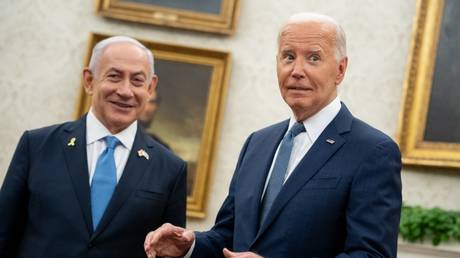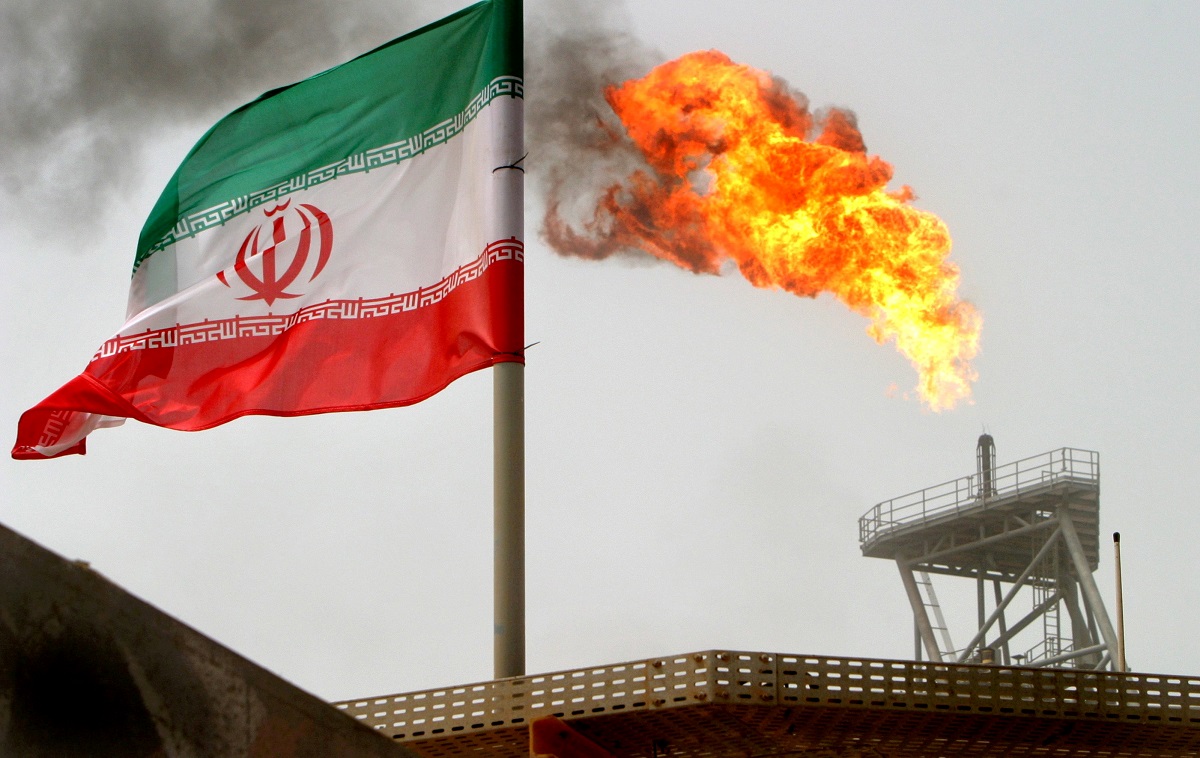ARTICLE AD BOX
The Israeli leader’s disregard for American advice has been a source of anger in Washington
US Vice President Kamala Harris has refused to say whether she considers Israeli Prime Minister Benjamin Netanyahu a “close ally,” after the latter ignored her administration’s calls for a ceasefire in Lebanon.
In a ‘60 Minutes’ interview set to air on CBS News on Sunday night, Harris was asked how the US can supply Israel with billions of dollars’ worth of military aid, while seemingly exercising “no sway” over Netanyahu.
After a rambling answer in which she claimed that the US has pushed Netanyahu closer to ending his ongoing war in Gaza and Lebanon, Harris was asked again whether the US has “a real close ally in Prime Minister Netanyahu?”
“I think, with all due respect, the better question is do we have an important alliance between the American people and the Israeli people,” she responded. “And the answer to that question is yes.”
 Biden ‘frustrated’ by Israel – Politico
Biden ‘frustrated’ by Israel – Politico
Ever since she replaced President Joe Biden as the Democratic presidential candidate in July, Harris’ position on Israel has come under fire from both pro-Israeli and pro-Palestinian factions within the party. Apparently attempting to placate both sides, Harris declared her support for an independent Palestinian state at the Democratic National Convention in August, before immediately promising that she would continue to supply Israel with arms and ammunition.
Netanyahu, who is widely believed to favor Donald Trump in the upcoming US presidential election, has spoken to and met with Biden and Harris on multiple occasions since he declared war on Hamas last October. Following these conversations, Biden and Harris have both claimed that the Israeli leader is moving toward a ceasefire, only for Netanyahu to return to Israel and promise to continue waging war.
Most recently, Netanyahu agreed to a ceasefire proposal drawn up by the US and France, before backing out at the last moment and ordering the assassination of Hezbollah leader Hassan Nasrallah in Beirut, American and other Western officials claimed last month. Two days later, he again defied American calls for de-escalation by sending ground troops into Lebanon, and on Tuesday he vowed to make Iran “pay for” a missile attack on Israel, despite US officials urging him to avoid any steps that may trigger a wider regional war.
“Whether he’s trying to influence the election, I don’t know,” Biden told reporters on Friday. Biden followed this comment with a reminder to the Israeli leader. “No administration has helped Israel more than I have. None, none, none,” he said. “And I think [Netanyahu] should remember that.”
.png)
 1 month ago
9
1 month ago
9








 English (US)
English (US)